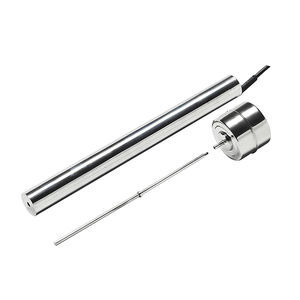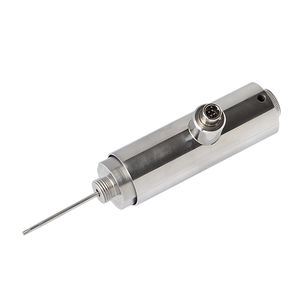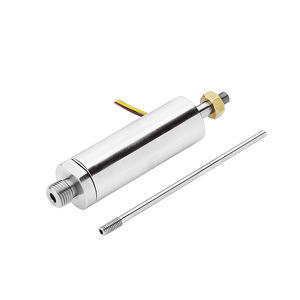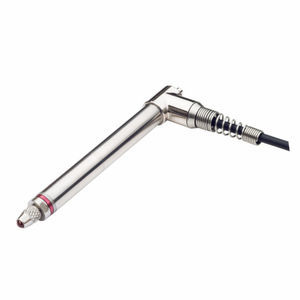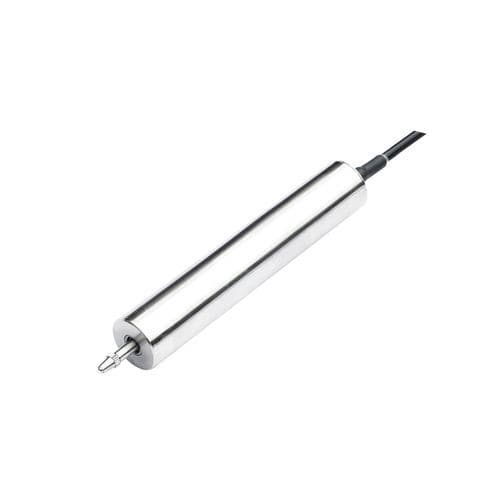

- Company
- Products
- Catalogs
- News & Trends
- Exhibitions
Linear displacement sensor SDVH20contactlessLVDTspring-loaded potentiometer
Add to favorites
Compare this product
Characteristics
- Type
- linear
- Contact / non-contact
- contactless
- Technology
- LVDT, spring-loaded potentiometer
- Output signal
- analog, digital
- Measurement object
- metal
- Protection class
- IP65
- Applications
- for process automation, OEM applications, rugged, for hydraulic applications, for valves, for shiny metal surfaces, for automation
- Other characteristics
- compact, high-resolution, precision, high-precision, rugged, cylindrical, miniature, stainless steel, long-range
- Measuring range
Min.: 0 mm
(0 in)Max.: 100 mm
(3.94 in)- Linearity
0.1 %, 0.3 %, 0.5 %
- Measuring rate
5 Hz
- Supply voltage
Min.: 9 V
Max.: 28 V
- Ambient temperature
Min.: -25 °C
(-13 °F)Max.: 85 °C
(185 °F)
Description
Introduction:
The linear variable differential transformer (LVDT) has been widely used in applications such as power turbines, hydraulics, automation, aircraft, satellites, nuclear reactors, and many others.These transducers have low hysteresis and excellent repeatability. DC-operated LVDTs are rugged in hermetically sealed sensors, constructed entirely of stainless steel 304 intended for environments containing moisture, dirt and fluid contaminants.They are designed to operate in conjunction with computer-based data processors(standard) or PLCs(option).
Features
- SS304 construction, Spring loaded
- DC operated, Built-in signal conditioner
- 3-wire voltage output 0-5V or 0-10V
- 2-wire current output 4-20mA
- Measurement ranges from 0mm to 100mm, high
- resolution and repeatability.
- Contactless, Long lifespan
Applications:
- TIR measurements
- Hydraulic cylinder position sensing
- Valve position sensing
- Roller gaps alignment
- Brake system inspections
Catalogs
Related Searches
- Proximity switch
- Cylindrical proximity switch
- Position transducer
- Inductive proximity switch
- Tilt sensor
- IP67 proximity switch
- Linear position transducer
- Displacement transducer
- Analog output position sensor
- DC proximity switch
- Linear displacement transducer
- Digital tilt sensor
- Non-contact position transducer
- MEMS tilt sensor
- Threaded proximity switch
- Magnetic position transducer
- Magnetic proximity switch
- Multi-axis inclination sensor
- Industrial position sensor
- Rectangular proximity switch
*Prices are pre-tax. They exclude delivery charges and customs duties and do not include additional charges for installation or activation options. Prices are indicative only and may vary by country, with changes to the cost of raw materials and exchange rates.


